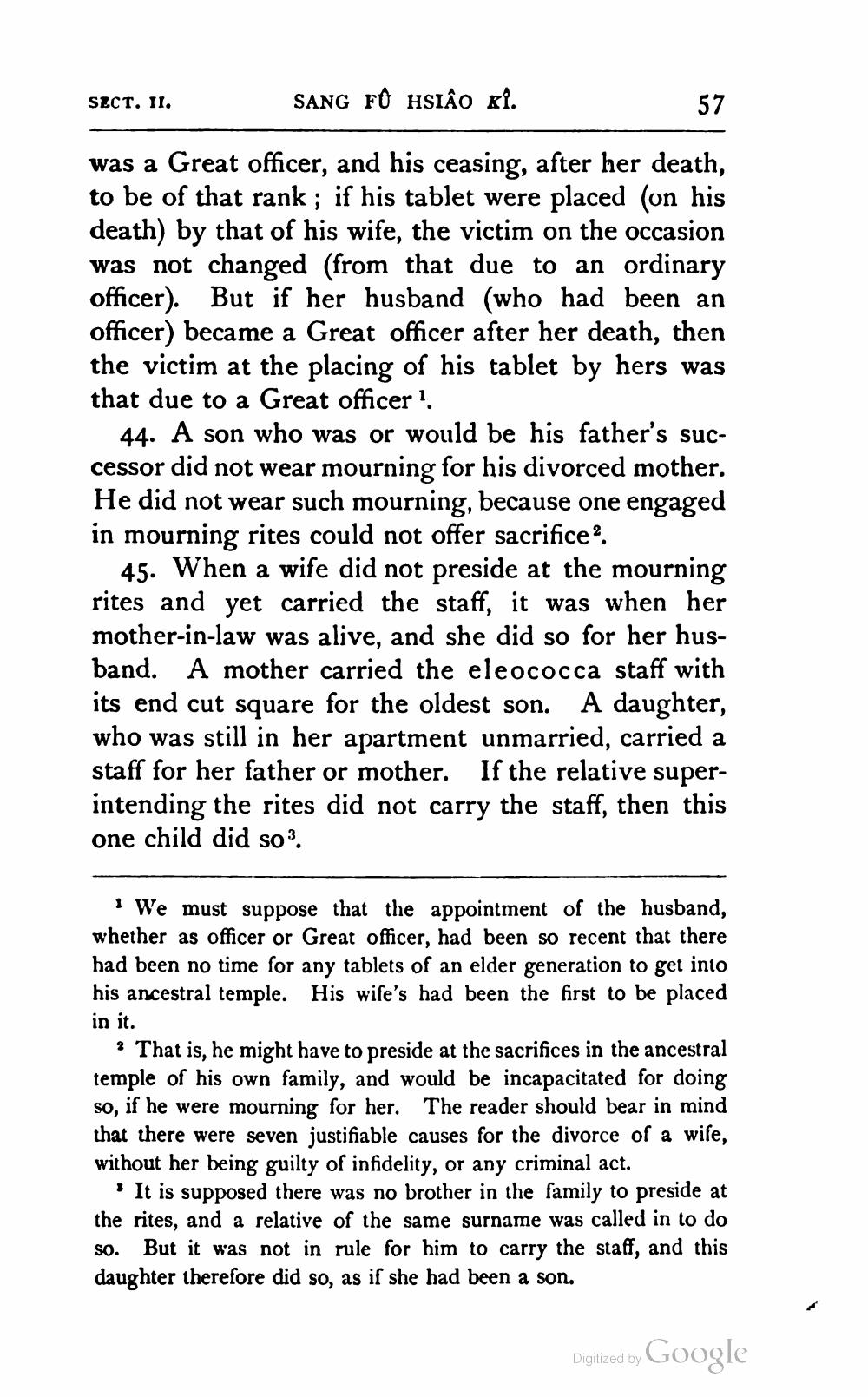________________
SECT. 11.
SANG FO HSIÃO kl.
57
was a Great officer, and his ceasing, after her death, to be of that rank; if his tablet were placed (on his death) by that of his wife, the victim on the occasion was not changed (from that due to an ordinary officer). But if her husband (who had been an officer) became a Great officer after her death, then the victim at the placing of his tablet by hers was that due to a Great officer
44. A son who was or would be his father's successor did not wear mourning for his divorced mother. He did not wear such mourning, because one engaged in mourning rites could not offer sacrifice 2.
45. When a wife did not preside at the mourning rites and yet carried the staff, it was when her mother-in-law was alive, and she did so for her husband. A mother carried the eleococca staff with its end cut square for the oldest son. A daughter, who was still in her apartment unmarried, carried a staff for her father or mother. If the relative superintending the rites did not carry the staff, then this one child did so".
! We must suppose that the appointment of the husband, whether as officer or Great officer, had been so recent that there had been no time for any tablets of an elder generation to get into his ancestral temple. His wife's had been the first to be placed in it.
? That is, he might have to preside at the sacrifices in the ancestral temple of his own family, and would be incapacitated for doing so, if he were mourning for her. The reader should bear in mind that there were seven justifiable causes for the divorce of a wise, without her being guilty of infidelity, or any criminal act.
It is supposed there was no brother in the family to preside at the rites, and a relative of the same surname was called in to do so. But it was not in rule for him to carry the staff, and this daughter therefore did so, as if she had been a son.
Digitized by Google




